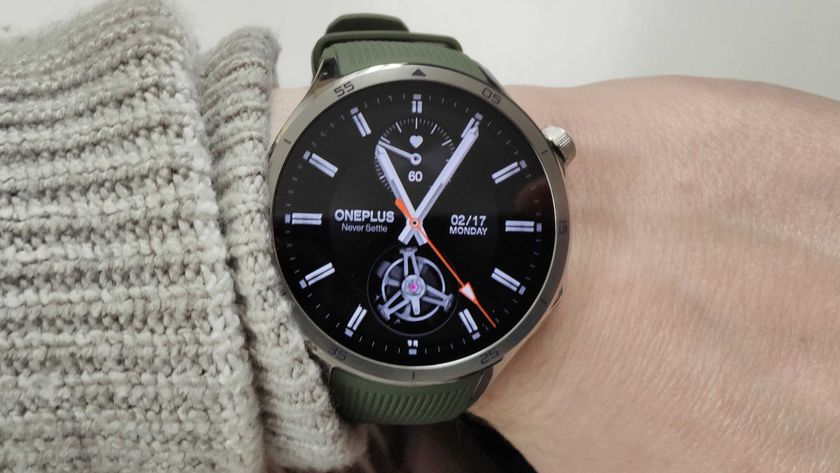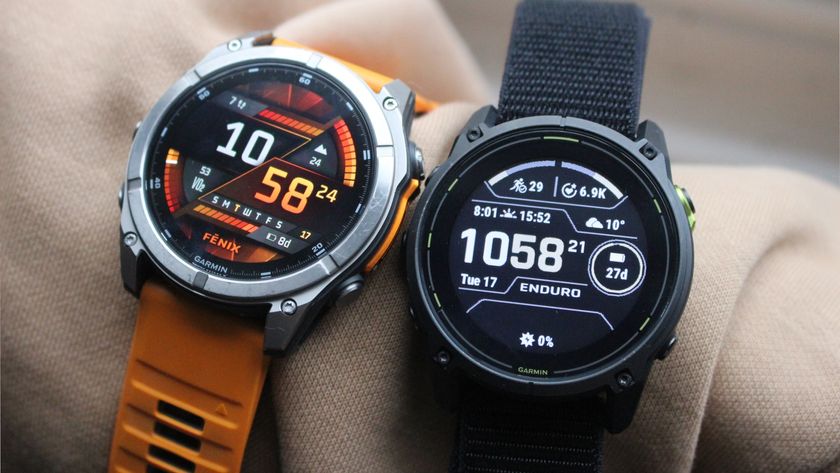You don’t need a fitness tracker for zone two training – just this free trick from Harry Styles’ trainer
Celebrity trainer Thibo David says building your aerobic capacity 'will serve you in your life'

Zone two training is a trendy term in the workout world right now, used to describe low-intensity steady-state cardio sessions. Even pop sensation Harry Styles is in on the act, with his trainer telling me the pair often embarked on “lengthy runs ranging from 10-18km” to keep the singer in stadium tour shape.
Long, steady sessions like these boast a plethora of benefits, such as building your aerobic capacity for improved athletic performance and longevity.
To help you try it, the best fitness trackers now come with heart rate zone monitoring, letting you know which heart rate zone you’re in as you train – zone two refers to a training intensity that holds your heart rate at roughly 60-70% of its maximum.
But celebrity trainer and performance coach Thibo David believes an analogue approach to zone two training is more dependable.
“A better test you can do is to start running at a conversational pace,” he tells me. “You need to be able to have a full conversation while running. While running, I should be able to have a conversation with you, maybe getting out of breath every three sentences. But then I can still take a breath and carry on talking.”
These signs are a good indication that you've achieved the aerobic capacity-boosting intensity you’re after from your training.

“This is the type of effort that you need to target,” David says. “You have to build a strong aerobic base, and this will serve you in your life.
Get daily insight, inspiration and deals in your inbox
Sign up for breaking news, reviews, opinion, top tech deals, and more.
“...Aerobic capacity is really the basis of all your training, and it has to be done properly. It has to be built in a way that will help you in every area of your life; for your brain function, for your lung function, for your recovery, for managing your injuries.”
The NASM (National Academy of Sports Medicine) goes one step further, providing physical factors to look out for which indicate the heart rate zone you’re working in.
In zone one, you should start to sweat lightly but still be able to hold a conversation “effortlessly”. Progressing into zone two, you should find your breath deepens, you’re sweating more and, while you can still hold a conversation, you won’t be able to speak continuously.
Zone three is characterized by “profuse sweating” and “vigorous breathing”, with speech limited to short phrases. By zone four you'll be “breathing as hard as possible” and only able to talk in single words or (relatably) “grunts”, and zone five is a maximal effort.
As a rough guide, zone one applies to workout intensities that put you in approximately 50-60% of your maximum heart rate, zone two is 60-70%, zone 3 is 70-80%, zone four is 80-90% and zone 5 is 90% or above.
These heart rate zones can be used during cardio sessions to make sure you’re hitting the desired intensity of your workout. Even if you're already using a fitness tracker or one of the best smartwatches, you can ensure you're sticking to those zones without even looking at your tracker, providing you have a partner to chat to.
You might also like...
- I asked ChatGPT to give me a five-move full-body Pilates routine, then had a certified Pilates instructor review it
- I've been walking 10,000 steps a day for a year – here are five unexpected benefits I've experienced
- I tried Hugh Jackman’s 7-minute workout which 'uses every single muscle' and it’s one of the hardest things I’ve ever done

Harry is a huge fan of picking things up, putting them down again and writing about it, which uniquely qualifies him for the position of fitness and wearables writer with TechRadar.
He’s an NCTJ-qualified journalist with a degree in English and journalism and several years’ experience covering the health and fitness beat. This has involved writing for the likes of Men’s Health, Women’s Health, Runner’s World, Fit&Well, Live Science and Coach.
Harry is passionate about all things exercise-related, having spent more than a decade experimenting with a wide range of training styles. He's used strength training, bodybuilding, Pilates, powerlifting, gymnastics, rowing, yoga, running, calisthenics, CrossFit and more to build a fit, functional body (and have fun while doing it).
When he’s not writing or training, he can usually be found racing his dog Archie up scenic hills in the south west of England or working to complete his NASM-certified personal trainer qualification.
Most Popular





